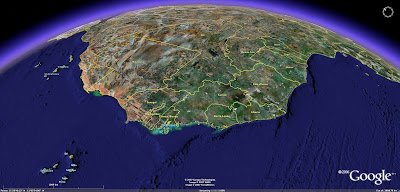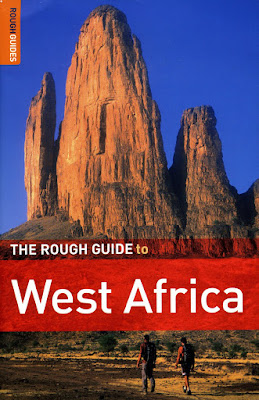News from a correspondent working in West Africa who visited Mauritania at the beginning of October. He writes: "If you feel any of this is helpful please feel free to post." I think it paints a very good picture of the current social environment:
"Mauritania was a great travel experience for me. The local people were genuinely hospitable and in many ways "the everyday" feels safer than most of the other West African countries I've visited or worked in. Everyone you speak to is deeply critical of the extremists. Clearly it is impossible to say if you were nonetheless "being watched" by other elements, or were in some sense "lucky", and the intense interest some people take in your movements can prompt some uneasiness (and rather evasive answers....). I tried to keep a low profile, spent time integrating with the locals and taking local advice, and emerged unscathed after ten days. At the risk of some fairly clumsy imagery, if you can mentally deal with the "elephants in the room" (coup/political instability; extremist threat), and the elephants stay in the corner, it is a great experience.
"There seemed to be hardly any other tourists around, and you may have seen that Point Afrique has now cancelled for this year. This is such a great shame for a people with so much hospitality ingrained in their "habitude". The only other tourists I saw were on the overland coastal route with cars or bikes - there were five 4x4s and five bikes at the Auberge Menata in Nouakchott and two 4x4s in Nouadhibou. In the interior I met two French guys who had a family connection in Chinguetti and that was it. Even the chameliers had gone into the brousse and were hard to find!
I was finding accommodation on the move and found that a lot of the auberges/campements were effectively closed. I say effectively because occassionally a person was hanging around who could open up a room or the terrace for you but that was about it. For example in Atar, would you believe, I found no lodgings open but was fortunately taken in by a large family who lived next to one of the out-of-town auberges. I bought them a whole chicken for dinner which we ate together outside on their rug, drank lots of tea, and then passed the night on a nearby terrace in the auberge complex. The person who sold me the chicken claimed I was the first European he'd seen all year (surely not true?).
"The iron ore train had recently had some problems (some robbers or a derailment or something) and the schedule was ramped down and all over the place. For example, the train was 11 hours late (3.30am arrival at Choum) and there were so many people that it was physically impossible to get inside the passenger cabins at Choum so I had to spend the trip outside which was pretty unforgettable in the Saharan heat and the dust, which does indeed work its way into your soul. As another example of people's hospitality, at Choum I fell in with a group of young Saharawis and Mauritanians who I met en route from Atar. We found a family in Choum to share dinner with - the father turned out to be the local gendarme - and then slept in their courtyard awaiting the train's delayed arrival, and then spent the next 13 hours sheltering-up and sharing tea on the train.
"The whole airport experience (I flew up to Casablanca) is an abomination of inefficiency, corruption and Mr Big syndrome, and Royal Air Maroc's monopoly-ticket pricing is outrageous. In short, I hope never ever again to have to be at the airport!"
1 year ago







.JPG)

.jpg)











